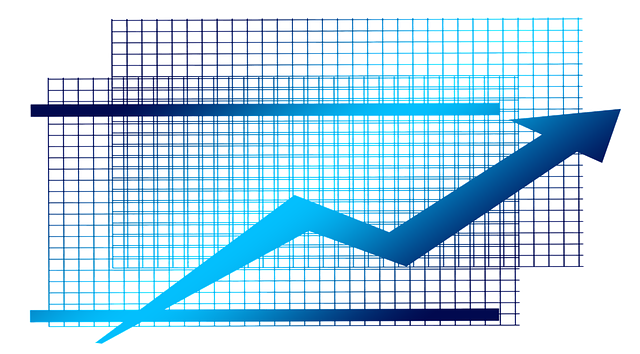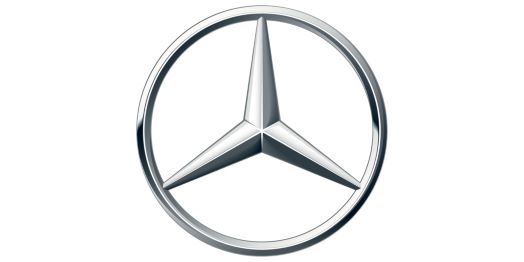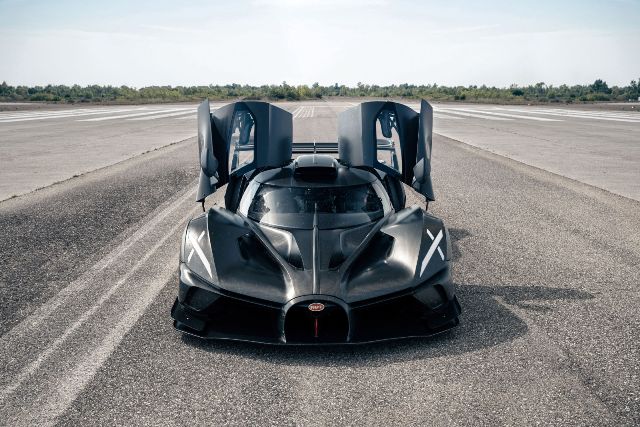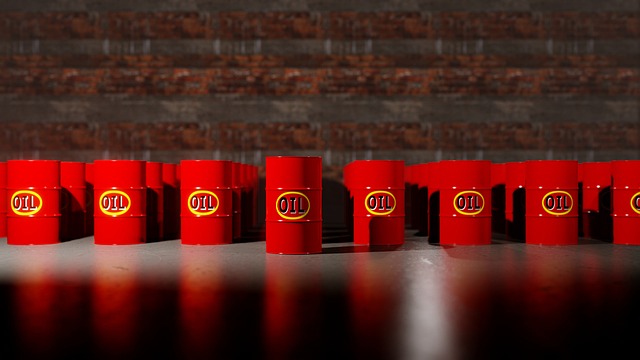
Daily Energy/Automotive News; Total motor gasoline inventories decreased by 0.3 million barrels from last week
London, 22 February 2024, (Oilandgaspress): – U.S. crude oil refinery inputs averaged 14.6 million barrels per day during the week ending February 16, 2024, which was 31 thousand barrels per day more than the previous week’s average. Refineries operated at 80.6% of their operable capacity last week. Gasoline production decreased last week, averaging 9.0 million barrels per day. Distillate fuel production increased last week, averaging 4.2 million barrels per day. U.S. crude oil imports averaged 6.7 million barrels per day last week, increased by 184 thousand barrels per day from the previous week. Over the past four weeks, crude oil imports averaged about 6.4 million barrels per day, 4.7% less than the same four-week period last year. Total motor gasoline imports (including both finished gasoline and gasoline blending components) last
week averaged 734 thousand barrels per day, and distillate fuel imports averaged 245 thousand barrels per day.
U.S. commercial crude oil inventories (excluding those in the Strategic Petroleum Reserve) increased by 3.5 million barrels from the previous week. At 443.0 million barrels, U.S. crude oil inventories are about 2% below the five year average for this time of year. Total motor gasoline inventories decreased by 0.3 million barrels from last week and are about 2% below the five year average for this time of year. Finished gasoline inventories decreased, while blending components inventories increased last week. Distillate fuel inventories decreased by 4.0 million barrels last week and are about 10% below the five year average for this time of year. Propane/propylene inventories decreased by 2.3 million barrels from last week and are 4% above the five year average for this time of year. Total commercial petroleum inventories decreased by
0.8 million barrels last week. . Read full article
The world’s biggest oil company and Formula One (F1) have been accused of greenwashing, in new advertising complaints submitted to UK and Dutch regulators. Saudi Aramco has made “misleading environmental claims” about its fuels, according to complaints submitted by UK campaign groups New Weather Institute and Fossil Free Football, and Reclame Fossielvrij in the Netherlands.
The oil company is 95 per cent owned by the Saudi Arabian state, and has an increasingly slick grip on the world of sport. Saudi Arabia’s Public Investment Fund (PIF) bought UK football club Newcastle United in 2021, and Aramco is set to become FIFA’s largest corporate sponsor. It sponsored the cricket World Cup last year, with ‘Aramco Player of the Match’ awards presented under record-pushing hot, polluted skies in India.. Read full article

In the heart of India, amidst the bustling city of Jamshedpur, lies an organisation that is quietly making a difference in the lives of countless individuals, the Nav Jagrat Manav Samaj (NJMS). NJMS is a non-profit organisation dedicated to the prevention and control of leprosy. With support from Tata Motors, NJMS has been working tirelessly to eradicate this debilitating disease and empower those affected by it. It has achieved significant milestones in reducing the incidence of leprosy in Jamshedpur and the surrounding areas. Involving over 500 local volunteers, including Tata Motors employees and other like-minded philanthropists, NJMS has had a significant impact on various aspects, such as health, education, employability and livelihood initiatives.
NJMS conducts a powerful annual door-to-door survey, reaching 75,000 people for early leprosy detection. In just three years, cases in Jamshedpur have dropped from 1.5 to 0.5 persons per 1000. Operating Antyoday Bhawan, NJMS provides free medical care, boarding and lodging to 4000+ leprosy patients. They also support children’s education and livelihood. Tata Motors’ crucial support propels NJMS’s impactful work in leprosy prevention, resulting in a significant decrease in leprosy incidence and thereby transforming lives in Jamshedpur and beyond.. Read full article

NIO Inc. , a pioneer and a leading company in the premium smart electric vehicle market, today announced that it will report its unaudited financial results for the fourth quarter and full year ended December 31, 2023 on Tuesday, March 5, 2024, before the open of the U.S. markets. The Company’s management will host an earnings conference call at 7:00 AM U.S. Eastern Time on March 5, 2024 (8:00 PM Beijing/Hong Kong/Singapore Time on March 5, 2024). A live and archived webcast of the conference call will be available on the Company’s investor relations website at https://ir.nio.com/news-events/events.
For participants who wish to join the conference using dial-in numbers, please register in advance using the link provided below and dial in 10 minutes prior to the call. Dial-in numbers, passcode and unique access PIN would be provided upon registering. . Read full article

Mercedes-Benz team receives another high profit sharing bonus
Based on the preliminary results for the 2023 financial year published today, eligible employees are expected to receive a profit sharing bonus of up to 7,300 euros. As a thank-you for their performance and engagement over the past year, Mercedes-Benz is once again sharing the company’s success with its employees. The amount of profit-sharing is independent of the pay grade. The final amount is subject to the determination of the definitive results for the past financial year in March 2024. The profit sharing scheme is a voluntary benefit offered by the company, and around 91,000 eligible employees in Germany will receive it with their April 2024 pay. Read full article

Mercedes-Benz Group 2023 results
Mercedes-Benz Group AG (ticker symbol: MBG) achieved solid 2023 financial results. A sharpened focus on desirable cars and vans combined with ongoing cost discipline resulted in Group Earnings Before Interest and Taxes (EBIT) of €19.7 billion (2022: €20.5 billion), and revenues of €153.2 billion (2022: €150.0 billion). For 2023, Mercedes-Benz Cars delivered an adjusted Return on Sales (RoS) of 12.6%, Mercedes-Benz Vans an adjusted RoS of 15.1%, and Mercedes-Benz Mobility an adjusted Return on Equity (RoE) of 12.3%, in a challenging environment marked by supply-chain constraints as well as geopolitical and macroeconomic volatility. Full year performance: Group revenue increased by 2% to €153.2 billion (2022: €150.0 billion) and Group EBIT amounted to €19.7 billion (2022: €20.5 billion)
Profitability: Mercedes-Benz Cars adjusted Return on Sales (RoS) reaches 12.6% (2022: 14.6%), 15.1% for Mercedes-Benz Vans (2022: 11.2%), and an adjusted Return on Equity (RoE) of 12.3% for Mercedes-Benz Mobility (2022: 16.8%)
Sales 2023: Mercedes-Benz Cars and Vans sales increased 1.5% to 2,491,800 vehicles; BEV sales rose +61% to 240,700 units (2022: 149,200); eVans sales +51% to 22,700 units (2022: 15,000)
Dividend: Dividend of €5.30 per share proposed (2022: €5.20)
Share buyback: Shares worth up to €3 billion to be repurchased, new buyback policy introduced
Outlook 2024: Group Revenue expected at prior-year level, Group EBIT seen slightly below 2023 level, Free Cash Flow of the Industrial Business expected slightly below prior-year level, Mercedes-Benz Cars adjusted RoS seen in the range of 10% – 12%, Mercedes-Benz Vans adjusted RoS seen at 12% – 14% and Mercedes-Benz Mobility adjusted RoE at 10% – 12%. Read full article

The Bugatti Bolide is an uncompromising thoroughbred that combines the iconic W16 and remarkable lightweighting techniques for a track driving experience that is unlike any other. Yet fundamental to the Bolide’s performance is the technology behind its capacity to tame its speed when needed – the biggest carbon-carbon brake system ever produced by Brembo. Designed to deliver an incomparable drive, the Bugatti Bolide1 was always going to be an extreme application that demanded a brake system from a name synonymous with peak performance. Early in the design process, Bugatti tasked Italian manufacturer Brembo with crafting a system that stands as a testament to the car’s uncompromising nature. From initial data to dyno testing to on-track analysis, Brembo racing engineers worked in close collaboration with Bugatti to meet the challenges associated with crafting a brake system that is entirely unique in its design and performance level. The result, following two years of demanding testing and development, is a carbon-carbon system that is on par with the technology that goes into LMh/LMDh and Formula 1 machinery.
The stopping power generated by the Bolide is in a class of its own. Its bespoke front brakes are the largest carbon-carbon brake ever, incorporating two eight-piston monobloc calipers, both equipped with four high-performance 25 mm pads, and remarkable 390×37.5 mm carbon discs. The calipers themselves are machined out of aluminum alloy and nickel coated. . Read full article

In Geneva, Dacia will showcase its prototype vehicle that the Dacia Sandriders will first race in 2025 in the Dakar Rally before heading to the World Rally-Raid Championship.
Dacia is constantly redefining the essentials through leveraging its three brand markers: Essential but Cool, Robust & Outdoor, and Eco-Smart. Dacia’s strategy is a perfect match for what’s needed to take on The Dakar: a life-sized technological laboratory committed to low-carbon mobility. The race will be an opportunity for Dacia to put its focus on the essentials to the test in the most challenging terrain. It will focus on its commitment to affordable decarbonisation, with Sandrider running on synthetic fuel made by Aramco.
Sandrider’s design has been inspired by feedback from racing crews from the very beginning and is perfectly consistent with Dacia’s DNA. Read full article

SAF One, a platform focused on the development of global sustainable aviation fuel solutions, announces the appointment of Kent, a world-renowned engineering firm, to carry out a technology licensing review for its first synthetic paraffinic kerosene (SPK) production plant. This announcement further underscores the company’s commitment to support the aviation sector with scalable, sustainable aviation fuel options.
This is supported by a joint dedication to sustainability and technological innovation on the part of both companies. With the application of Kent’s process optimization experience in technology integration and project management, SAF One is excited to fast-track the development and commercialization of sustainable aviation fuels, setting new benchmarks in time to market performance whilst delivering high quality engineered facilities for the production of low carbon fuels. Commenting on the appointment, Jeff Ovens, Chief Operating Officer at SAF One, said, “This appointment of Kent for a licensor evaluation marks a key milestone in the development of our first dedicated SPK plant. A successful SPK project starts with good engineering and a thorough assessment of available processes and technologies to ensure a safe, efficient, reliable and ultimately bankable project. I am confident that Kent’s history and proficiency in such evaluations will enhance our initiatives, helping us to provide innovative, scalable solutions tailored to the aviation industry’s changing demands.”
Chris Avison, Vice President of Business Development at Kent added, “We are delighted to have been selected by SAF One to support their strategic goal of producing low carbon fuels from their first dedicated SPK plant. Kent’s proven expertise in selecting and integrating cutting-edge technologies, coupled with our track record of safely delivering complex process plants, positions us to effectively guide the technology licensing review process. This award aligns with Kent’s purpose to be a catalyst for energy transition and an exciting addition to our Low Carbon projects portfolio.”
By joining forces with Kent, SAF One aims to leverage the firm’s extensive experience and resources in the petrochemical and renewables space, to drive meaningful change within the aviation sector. Together, both parties are devoted to accelerating the process of adopting sustainable aviation fuels to contribute to a more sustainable and resilient future of aviation. Read More

TechnipFMC Announces Fourth Quarter 2023 Results .
Total Company revenue in the fourth quarter was $2,077.7 million. Income attributable to TechnipFMC was $53 million, or $0.12 per diluted share. These results included after-tax charges and credits of $9.7 million, or $0.02 per share
Total Company revenue in the full year was $7,824.2 million. Income attributable to TechnipFMC was $56.2 million, or $0.12 per diluted share. These results included after-tax charges and credits totaling $145.2 million of expense, or $0.32 per share, which included the following pre-tax items
Subsea inbound of $1.3 billion; full-year orders of $9.7 billion grew 45% versus 2022
Total Company backlog of $13.2 billion increased 41% versus the prior year
Cash flow from operations of $701 million in the quarter; free cash flow of $630 million
Shareholder distributions of $77 million in the quarter, $249 million for the full year
Subsea order outlook for three-year period through 2025 increased 20% to $30 billion Read More

Hydro’s business area, Bauxite & Alumina, has entered into a partnership with Heavy Industry Low-carbon Transition Cooperative Research Centre (HILT CRC), an Australian based collaborative venture focused on the decarbonization of heavy industry. By becoming a member, Hydro will support studies in the field of alumina and gain access to technological advancements that could be implemented in its operations in Brazil. HILT CRC is a collaborative venture bringing together industry, research and government organizations to develop and de-risk the technological solutions needed to reduce emissions in the iron and steel, alumina and cement industries, and achieve net-zero by 2050. Currently HILT has 53 partners including over 30 industry partners. Read More

General Index announce the launch of new physical crude spot price assessments as a differential to the ICE Midland WTI (HOU) futures contract.
In recognition of changes to the entire US oil landscape over the last 15 years, market participants now see the market pricing basis for US export barrels shifting to Midland WTI at the Gulf Coast (Houston). The current, outdated US crude pricing system is based on the market in Cushing – landlocked in the middle of the US, with no direct access for exporting to international markets – and based on a blended “domestic sweet” crude (or DSW) that is not highly sought, either domestically or internationally.
ICE’s Midland WTI (contract code: HOU) futures contract is the only liquid, physically delivered Midland futures contract, allowing participants with Dated Brent exposure to hedge Midland deliveries, with the option to take physical delivery of Midland barrels at two of the biggest terminals in Houston – the Enterprise Crude Houston (“ECHO”) and ONEOK’s Magellan East Houston (“MEH”) terminals. Houston, a major hub for both exports and US domestic refinery demand, now represents the most active crude trading hub on the USGC.
GX has launched more than 20 new relevant spot price indices, reflective of different locations and grades, providing the perfect vehicle to transition from landlocked DSW to international Midland WTI (at Houston). With these new prices, the market will be able to track and trade US pipeline crude markets vs Midland WTI at the Gulf Coast. Traders will also have the invaluable ability to hedge positions with the ICE HOU-based prices because the trade period is the same as those for futures contracts. These prices help reduce risks from a pricing basis unrepresentative of refinery runs and vulnerable to negative prices. Read More

SABIC and Fujian Energy and Petrochemical Group Co. Ltd. (Fujian Energy Petrochemical) held a groundbreaking ceremony to mark the start of full execution and construction phase of SABIC Fujian Petrochemical Complex (Sino-Saudi Gulei Ethylene Complex Project) in Fujian Province, China. SABIC CEO Abdulrahman Al-Fageeh attended the event, celebrating the next chapter of the joint venture.
Abdulrahman Al-Fageeh, SABIC CEO said, “The SABIC Fujian Petrochemical Complex is a landmark project in our development in China and testament to SABIC’s ambition to become the world’s preferred leader in chemicals. As we embark on a new chapter, we remain fully committed to providing effective solutions to our customers, maximizing shareholder value, and supporting industry upgrading. China – as one of the key major petrochemical markets globally – is also a very crucial and strategic market for SABIC. By leveraging our unique strengths, SABIC will continue to invest in China and collaborating with our local partners to contribute to the country’s high-quality sustainable development.”
The SABIC Fujian Petrochemical Complex is located in Gulei Petrochemical Industrial Park, which is one of the seven national petrochemical hubs in China. It will be built by SABIC FUJIAN Petrochemicals Co. Ltd, a 51:49 joint venture established in March 2022 between SABIC Industrial Investment Company (wholly owned by SABIC) and Fujian Fuhua Gulei Petrochemical Co., Ltd. (holding by Fujian Energy and Petrochemical Group). SABIC announced its final investment decision for the project in January 2024. With an estimated total investment of RMB 44.8 billion (USD 6.4 billion), the project marks a significant milestone in cross-regional win-win cooperation for SABIC and Fujian Energy Petrochemical. The project is scheduled to commence the preparation for commissioning and start-up from the second half of 2026, with an expected annual ethylene capacity up to 1.8 million tons, to meet growing demand for high-end chemical products in the market and among customers, while stimulating downstream investment opportunities. Read More
SABIC, a global leader in the chemical industry, has announced that its ULTEM™ resin has helped Blickfeld, a leading innovator in LiDAR technology, develop their recently launched Qb2 device. Blickfeld’s new Qb2 is the first smart LiDAR sensor that can both capture and process 3D data on a single device. LiDAR (light detection and ranging) is an optical sensing technique that uses lasers to produce highly accurate 3-dimensional measurements of any environment or object. The highly complex and miniaturized optical carrier required for this new device is molded in ULTEM resin. The choice of ULTEM resin helped to reduce total system cost with a lower material cost combined with easier and faster production scale up compared to aluminum.
Dr. David Elvers, PhD, Business Development Manager at SABIC Specialties, mentioned: “ULTEM resin offered a clear solution to Blickfeld’s desire of replacing aluminum in their new compact optical carrier. LiDAR is a growing market, and we are proud that our advanced material and design support has once again proven to help customers like Blickfeld solve the design challenges of structural applications in opto-electronics.”
Blickfeld develops LiDAR solutions for application spaces such as security, crowd analytics and the monitoring of material volumes in harsh environments. Within the fast-growing LiDAR market, the manufacturer identified the opportunity to develop a compact and smartly integrated solution to further boost growth. The end-users of Blickfeld LiDAR solutions such as security companies for public venues, industrial manufacturing sites, and even farming welcome the benefit of a much easier, plug-and-play setup without the need for additional computing hardware. . Read More

| Oil and Gas Blends | Units | Oil Price US$/bbl | Change |
| Crude Oil (WTI) | USD/bbl | $78.57 | Up |
| Crude Oil (Brent) | USD/bbl | $82.54 | Up |
| Bonny Light | USD/bbl | $85.35 | Up |
| Saharan Blend | USD/bbl | $84.66 | Up |
| Natural Gas | USD/MMBtu | $1.68 | Down |
| OPEC basket 21/02/24 | USD/bbl | $81.99 | Down |

Braskem S.A. reports to its shareholders and the market its Production & Sales Report for the fourth quarter and fiscal year of 2023. Note that the information herein is based on preliminary data and that figures were not revised by the Company’s independent auditor. During 4Q23, most petrochemical spreads in the international market increased compared to the previous quarter, albeit at historically low levels due to the industry’s cycle moment. The main positive highlights are: (i) the PE-ethane spread, which increased by 10% in the period due to the reduction in the ethane price on the international market, impacting positively Mexico’s and partially Brazil’s spreads; and (ii) the increase in US propylene price, which benefited the profitability of producers with flexibility in purchasing propylene.. Read full article
Vauxhall’s parent company has secured the future for its Luton plant but demanded more government aid to help drive the transition to electric vehicles.
Stellantis confirmed on Thursday the Bedfordshire site will produce “limited” volumes of electric vans for five of its group brands from 2025. They would include the Vauxhall Vivaro Electric, Peugeot E-Expert and Fiat Professional E-Scudo in both right and left-hand drive versions, it said. The company added Luton, which has produced vans for 92 years, would also continue to manufacture some combustion engine-powered models..The maiden voyage of BYD’s first ocean-going truck carrier was a success with 5,449 new vehicles on board. Reaching the ports of Vlissingen in the Netherlands and Bremerhaven in Germany, the models will soon be distributed across European dealerships. Read more
Electric cars priced at just £8,000 could soon be heading to the UK in a revolution set to shake up the motor industry.
Chinese EV firm BYD has shipped over 5,000 new vehicles to Europe with the budget price motors soon to hit forecourts. Read full article
Diesel car sales have risen in the UK for the first time since 2016.
The vehicle class’ 12 per cent revenue spike in December occurred as electric vehicle sales declined 34 per cent the same month.diesel sales in Germany rose a whopping 11 per cent across 2023 with the driving class representing a 24 per cent market share — compared to the UK’s 7.5 per cent. Manufacturers have also begun focusing on integrating diesel engines into their premium segments since buyers of these pricier cars tend to enjoy diesel properties. Read full article
Baker Hughes Rig Count: U.S. -2 to 621 Canada +2 to 234
U.S. Rig Count is down 2 from last week to 621 with oil rigs down 2 to 497, gas rigs unchanged at 121 and miscellaneous rigs unchanged at 3.
Canada Rig Count is up 2 from last week to 234, with oil rigs up 3 to 144, and gas rigs down 1 to 90.
International Rig Count is up 10 rigs from last month to 965 with land rigs up 5 to 740, offshore rigs up 5 to 225. International Rig Count is up 64 rigs from last year’s count of 901, with land rigs up 65, offshore rigs down 1.
The Worldwide Rig Count for January was 1,784, up 45 from the 1,739 counted in December 2023, and down 115, from the 1,899 counted in January 2023.
| Region | Period | Rig Count | Change |
| U.S.A | 16 February 2024 | 621 | -2 |
| Canada | 16 February 2024 | 234 | +2 |
| International | January 2024 | 965 | +10 |

Oil and Gas News Undiluted !!! �The squeaky wheel gets the oil�
OilandGasPress Energy Newsbites and Analysis Roundup | Compiled by: OGP Staff, Segun Cole @oilandgaspress.
Disclaimer: News articles reported on OilAndGasPress are a reflection of what is published in the media. OilAndGasPress is not in a position to verify the accuracy of daily news articles. The materials provided are for informational and educational purposes only and are not intended to provide tax, legal, or investment advice.
Information posted is accurate at the time of posting, but may be superseded by subsequent press releases
Please email us your industry related news for publication info@OilAndGasPress.com
Follow us: @OilAndGasPress on Twitter |
Oil and gas press covers, Energy Monitor, Climate, Renewable, Wind, Biomass, Sustainability, Oil Price, LPG, Solar, Marine, Aviation, Fuel, Hydrogen, Electric ,EV, Gas,


